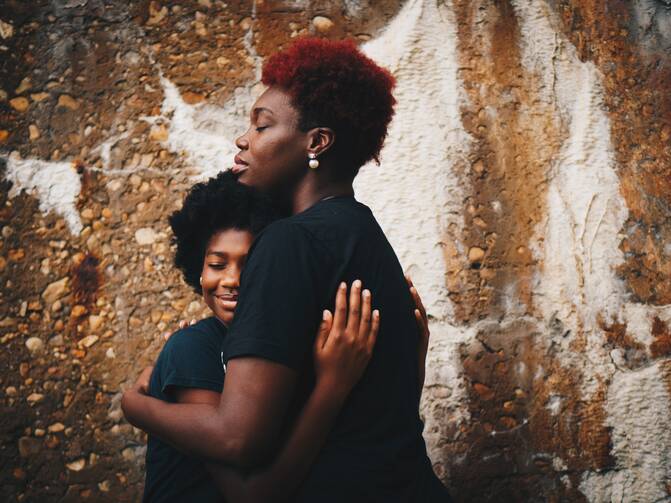One recent afternoon, I stepped into my kitchen and wondered where everyone was. I did a quick inventory in my mind: Some were at basketball practice, some were at work, others were with friends.
I was alone in my house.
I looked around surprised. As an at-home working mom, there have been precious few moments where I have found myself alone in the past 25 years. And yet, with grown children who are married, working and away at college, and with children at home engaged in pursuits of their own, this kind of thing happens more and more.
To mother means to nurture relationships, the very things that give meaning to our lives and our work.
I love it, and I don’t. I find myself with unexpected pockets of time and space where I used to have none, and I struggle sometimes to know what I should do now, who I should be now. Like the awkward way my arms used to hang at my sides at a party without a baby in tow, my own life can feel awkward. There is too much time. There is too much space.
When I was a young mom, I grappled with that identity. It was something much bigger but also much smaller than anything I had ever been. Motherhood was an all-encompassing thing, and yet also a hidden thing. There were no more accolades like grades in school or acknowledgment at work. There were only clingy human beings, complete exhaustion and an occasional pat on the head from the world at large: “What do you do? Are you just a mom?”
I was not just a mom. Being a mother took everything I had and then some. It was what I did all day, every day, but it was not all that I was.
Through the years, I have come to see the word “mother” in a different way. Where I once saw “mother” as limiting, I have come to understand it as expansive. “Mother” is something we women do. And God made us for it.
Women who have children and raise them are mothers. But women who love their husbands, nieces, nephews, neighbors, co-workers, students, family and friends are mothers, too. “Mother” is, in fact, who we are. Thanks be to God for mothering.
St. Edith Stein once wrote, “The woman’s soul is fashioned as a shelter in which other souls may unfold.”
Our feminine capacity to connect with others, to see them as they are, to provide a nurturing space where they can feel uniquely known and loved, to be sensitive to their needs and respond to them in personal ways is our greatest gift.
But women are not meant to be “just mothers,” we might protest. We are meant to be teachers, scientists, artists, politicians and chief executive officers! Of course, we can be all of these things, but it is a sexist world that tells women that mothering is somehow beneath us or that in order to be successful we must hide our hearts.
To mother means to nurture relationships, the very things that give meaning to our lives and our work. If you have been loved by any kind of mother in this world—if a woman has seen you, nurtured you, known you and loved you, you know its worth. It is no small thing to be seen and known and loved; it is everything.
So what now? Is it time to step into a clichéd persona as an empty-nester, wiping away tears with my apron strings? Or, with my grown children, my husband, my friends and co-workers, is it time to step more deeply into the expansive work of motherhood, the limits of which I have not yet seen?
Whatever work I might do and whatever goals I might accomplish in the days to come, I know this much: I am going to keep on seeing the people God places in my life. I am going to keep on knowing them and loving them to the best of my ability. I am going to keep on being just a mom.










